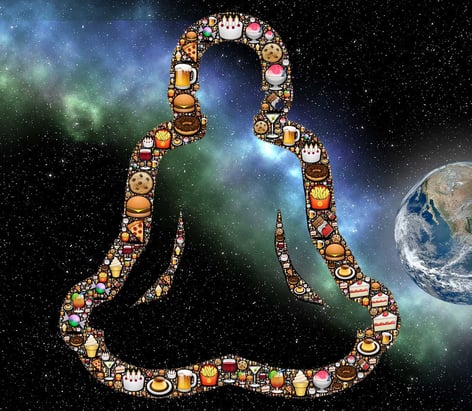The Impact of Organic Living on Health and Wellness
Explore the journey from a childhood of organic living to a healthier lifestyle, the importance of reducing toxins, and how to organize bulk meat inventory for a cleaner diet. Start making positive changes for you and your family today.
Back when Madonna looked normal, Michael Jackson’s Thriller was everywhere, and the Cold War was in full swing, I was a kid growing up in an Oregon valley. We lived in a small town with no stoplights, no police department, and no chain stores. My Dad grew up on a dairy farm, and my Mom’s parents also grew up on farms. We were all much healthier than people are today. My Great Grandparents were all still living, and I had never heard of anyone having anything called a “chronic disease”.
Every one of my classmates were healthy, and there was only one boy in the entire school who
was overweight.
At home, I never knew a time when we didn’t have grass-fed, organic beef in the big chest freezer. Nobody used the terms “organic” or “grass-fed” back then because everything was organic. My Grandparents lived next door and kept a large garden, from which my Grandma still canned.
After I grew up and moved away, I pretty much ate like crap. My lifestyle had swung dramatically away from the way I was raised. In college, it wasn’t even an option to get the type of food I had when I lived at home. I had no idea what effect that drastic shift in diet had in store for me. In a nutshell, my weight when up while my health went down. Yet I didn’t put two and two together until many
years later.
Today, after many years of surviving in a large East coast city, I find myself back in country surroundings. No more trains, busses or street parking, just huge expanses of blue sky and the occasional tractor in the road. We have a garden, and I occasionally do some canning, though not as much or as well as my Grandma. I’ve got a big chest freezer like the one my parents had, and we keep it full of local, grass-fed, organic beef.
A study came out recently in July 2024 that was over seven decades in the making.1 Researchers followed over 3,000 people from age 4 until 70 and confirmed what common sense tells us. Eating a high-quality diet as a child and even into middle age leads to better cognitive function later in life.
“The researchers observed that only about 8% of individuals with low-quality diets managed to sustain high cognitive ability over time. Meanwhile, among those with high-quality diets, only 7% had sustained low cognitive ability compared to their peers.”2
My Dad always said, “If it ain’t broke, don’t fix it.” He wasn’t talking about diet, but if the shoe fits… The only thing I could do to improve upon the way we ate was create a better way to organized and track our bulk meat inventory. I put together a digital template and added a couple graphs that automatically updated when inventory changed. I emailed it to my parents, who have since one-upped me by retiring to Alaska, where they live off-grid and are now in their seventies. They prefer to use it printed out and hung next to the freezer, whereas we use it digitally.
A “little bit” of toxins here and a little there add up quickly in a growing child, and can create bad habits that endure and affect them for their entire lives. Between food and their environment, Is there really ever an acceptable amount of poison for your child?
The good new is that we have the ability to make ourselves and our kids healthier, and it’s not too late to start.


